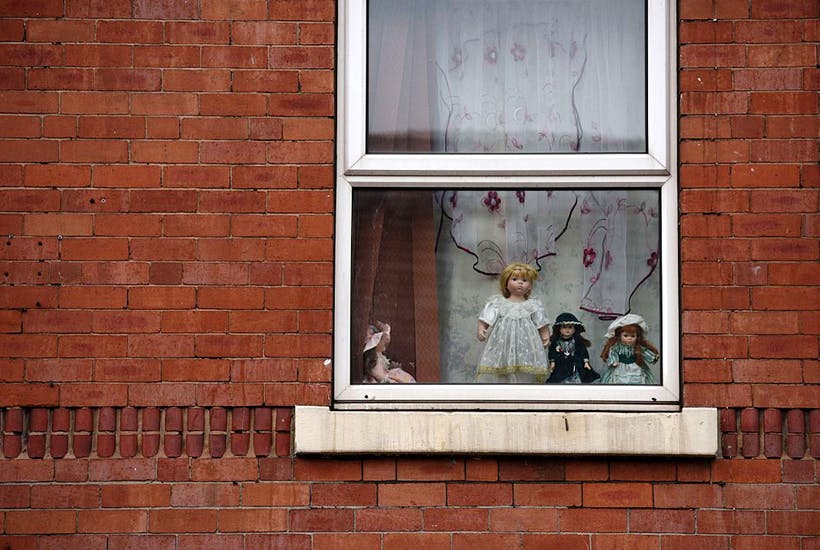It’s vital to talk plainly about what led to the situation in Manchester, where vulnerable white working-class girls were sexually abused as those tasked with protecting them simply looked on. The perpetrators have been described as belonging to ‘Asian’ grooming gangs. But the Times has reported that those involved were ‘mainly of Pakistani heritage’. So what’s the truth about who these men are? This is a difficult and uncomfortable topic, but to prevent a repeat of what unfolded in Manchester, it is vital to speak openly.
According to a harrowing report from the independent inquiry into the failings of Greater Manchester Police (GMP) and council, gangs of ‘predominantly Pakistani men’ were left free to abuse dozens of children aged between 12 and 16. But while the whistleblower in this case – Margaret (Maggie) Oliver, a now retired former detective constable in the Greater Manchester Police – refers to the men involved as such, few others do. Indeed, the Operation Augusta report itself says:
‘We have replicated the use of the term Asian throughout this report as this was widely used within both the police and social care records at the time.’
But in such sensitivity, there is a possibility – if indeed those offending were predominantly from a Pakistani background – of making the same mistake that led to these individuals going unchecked for so many years. After all, it is vital to be precise about who was responsible for these vile crimes, particularly if – as the mayor of Greater Manchester, Andy Burnham, warns – these men are still at large.
Depressingly, it would be no surprise if Burnham is right and the perpetrators had not been brought to justice. The report published last week makes it clear that those entrusted to protect victims utterly failed them, turning a blind eye to systematic abuse. In one deeply disturbing section it tells us:
‘Perpetrators appeared to be operating in “plain sight”, hanging around in cars outside care homes and foster homes and returning young people to their care addresses.’
Authorities feared stoking up racial tensions or being branded racist – as they did in Rotherham before. Instead, authorities in Manchester opted to sacrifice helpless girls on the altar of political correctness. The consequences of this prevailing culture are terrifying, especially when the report concludes:
‘The authorities knew that many were being subjected to the most profound abuse and exploitation but did not protect them from the perpetrators.’
Yet the truth is this: if we don’t start having an honest conversation about this strain of child sexual exploitation, we serve to embolden the far-right who will exploit our reluctance to openly discuss the heritage of perpetrators.
The description of Manchester’s grooming gangs as ‘Asian’ might technically be correct. But it is so broad a label that it is essentially meaningless. After all, would we describe offenders as ‘European’? It’s unlikely for a simple reason: it’s too general a description. The same applies here.
Instead, the label appears to be a fudge, which gives the misleading impression that gangs of Korean, Chinese, Vietnamese or Japanese men are targeting vulnerable white working-class girls. This appears not to be the case.
Whether we like it or not, we must be specific about the heritage of the perpetrators, in order to try and address the motivations behind these crimes. When judge Gerald Clifton sentenced men in Rochdale (eight of Pakistani origin) he said they viewed victims as ‘worthless and beyond respect’. He asserted that one of the motivations behind this was that ‘they were not part of your community or religion’. He was right to speak out.
Yet when I attempted to find out more about the identity of the pool of suspects in Manchester, I was left searching for answers. GMP directed me to Greater Manchester Combined Authority, who pointed me to a footnote in the report (quoted above) and said:
‘The contemporaneous records generally referred to “Asian” men and it was not possible for the review team to independently identify their ethnic origin. Where any records or interviewees were more precise we used the term they employed.’
It’s not easy to countenance the reality of the deeply disturbing phenomenon that took place on the streets of south Manchester, but one thing is clear: it amounts to a national scandal that shames Britain. It has blighted many towns and cities across Britain: Rotherham, Rochdale, Oxford, Telford and Newcastle to name but a few.
Back in 2012, when I first objected to the catch-all term ‘Asian’ to describe those convicted in Rochdale, I was defamed by Star Wars actor Riz Ahmed and smeared by others online. One person on Twitter absurdly suggested I was a member of the BNP. Another well-known public figure falsely alleged to have me on tape giving ‘hate statements’.
My online character assassination shows the problem when entering this arena. People rightly fear grasping the nettle. Self-censorship might be the safer option. But this is a mistake and leads to the possibility that nothing is learned. According to the report into what happened in Manchester:
‘Mrs Oliver (the whistleblower) stated that they firmly believed that this was a very organised group of offenders whereby the younger men were tasked with picking up the young people and befriending them before passing the children on to be abused at “sex parties” by older, predominantly Pakistani, men’.
If the perpetrators of these offences were indeed predominantly Pakistani men, that might be an unpalatable fact. But it does an injustice to the many victims to pretend otherwise.






Comments